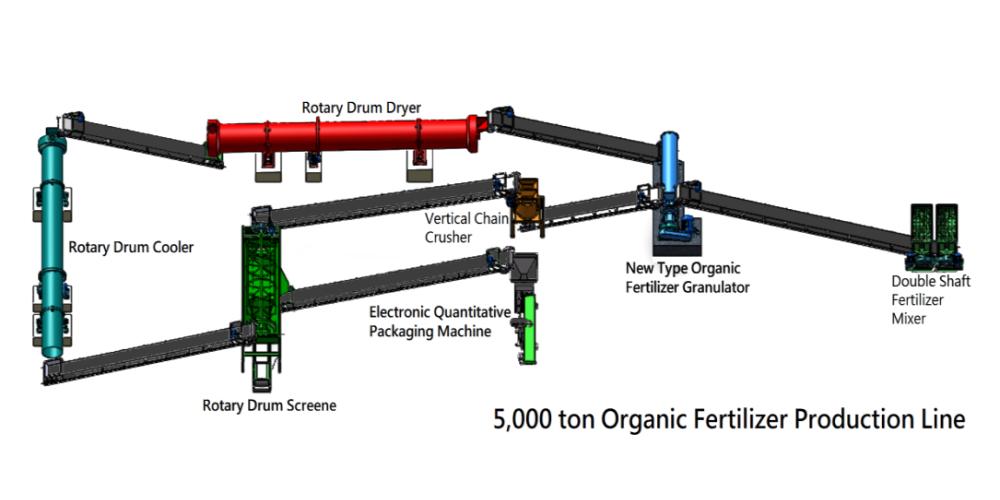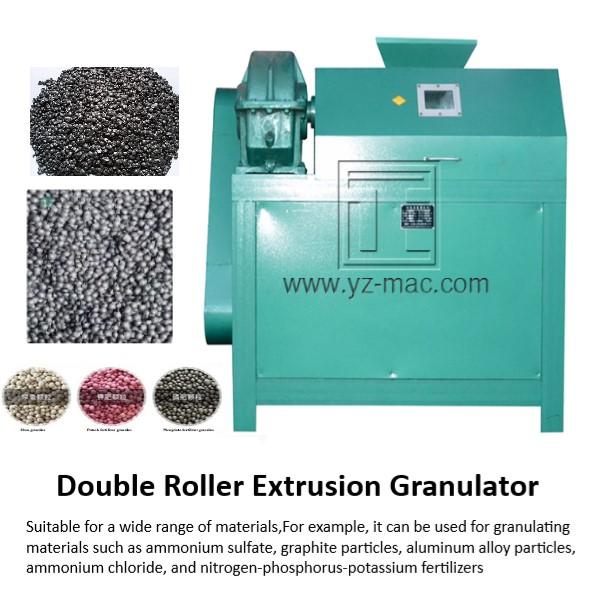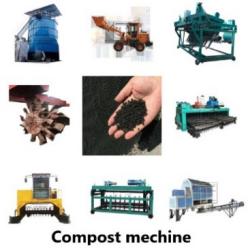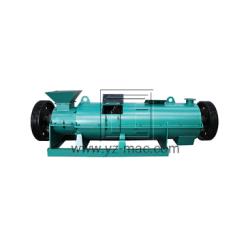Small-scale bio-organic fertilizer production line
A small-scale bio-organic fertilizer production line can be an efficient way for small-scale farmers or gardeners to produce high-quality organic fertilizer using organic waste materials. Here is a general outline of a small-scale bio-organic fertilizer production line:
1.Raw Material Handling: The first step is to collect and handle the raw materials, which can be a variety of organic waste materials such as crop residue, animal manure, food waste, or green waste. The organic waste materials are collected and stored in a container or pit before being processed.
2.Composting: The organic waste materials are then processed through a composting process. This involves the use of microorganisms to break down the organic materials and convert them into nutrient-rich compost. The composting process can be done using a variety of methods such as static pile composting, windrow composting, or vermicomposting.
3.Crushing and Screening: The compost is then crushed and screened to ensure that it is uniform and to remove any unwanted materials.
4.Mixing: The crushed compost is then mixed with other organic materials, such as bone meal, blood meal, and other organic fertilizers, to create a balanced nutrient-rich blend. This can be done using simple hand tools or small-scale mixing equipment.
5.Granulation: The mixture is then granulated using a small-scale granulation machine to form granules that are easy to handle and apply.
6.Drying: The newly formed granules are then dried to remove any moisture that may have been introduced during the granulation process. This can be done using simple drying methods such as sun drying or using a small-scale drying machine.
7.Cooling: The dried granules are cooled to ensure that they are at a stable temperature before they are packaged.
8.Packaging: The final step is to package the granules into bags or other containers, ready for distribution and sale.
It is important to note that the scale of the equipment used in a small-scale bio-organic fertilizer production line will depend on the volume of production and available resources. Small-scale equipment can be purchased or built using simple materials and designs.
Overall, a small-scale bio-organic fertilizer production line can provide an affordable and sustainable way for small-scale farmers or gardeners to produce high-quality organic fertilizer that can help improve soil fertility and increase crop yields.








